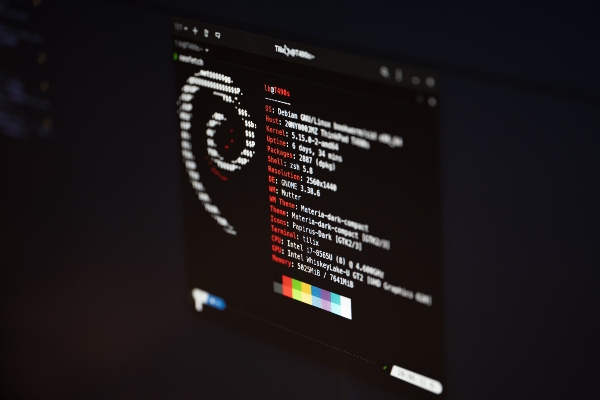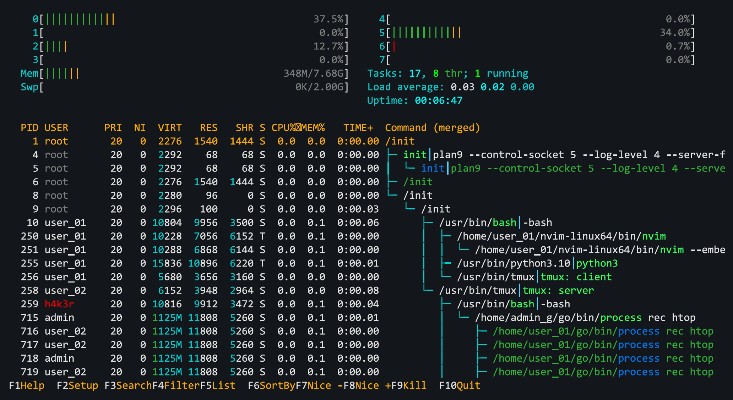Linux Developer Interview Questions and Answers
What you Need to Know


What you Need to Know
Linux is an open-source platform and family of operating systems that is used by programmers and engineers across the world. Candidates with experience working on and developing programs for Linux are in high demand, especially in sectors where Linux is commonly used.
Linux is often used in embedded systems and devices, so at KO2 we’ve had a lot of experience understanding what is required of candidates in Linux developer jobs and how they can perform best in interviews. Researching the most common Linux interview questions and answers is a key part of this, as it helps you to be prepared for what the interview might involve and prepare answers and examples in advance that will make the process run smoothly.
In this article, we explain the main roles and responsibilities of a Linux developer and then explore some key technical Linux job interview questions and answers to help you prepare.
A Linux developer is a specialist software developer or programmer who works predominantly on a Linux operating system. Linux is an open-source operating system kernel that is used in a range of operating systems, and Linux developers write code and create programs that are designed for these.
As a Linux developer, you’ll usually have a general background in computer science or software development and have developed a specialisation through working on projects that use Linux operating systems. You can write code that is compatible with Linux in a range of programming languages, such as C, Python or Java, but the Linux ecosystem is quite complex, so it’s a role that most candidates aim for after at least a few years of general programming experience.

Linux developers have a range of responsibilities that revolve around creating and maintaining software used by Linux operating systems. They can be employed across a variety of sectors in the engineering industry, including embedded systems which are operated by Linux.
Different industries and businesses will require developers for different tasks, such as system administration or kernel development, so what a Linux developer does day-to-day will really depend on their employer. However, some responsibilities are similar across different roles, which are listed below.
Linux developers will often work independently when they’re programming, developing software or debugging code. However, most Linux developers will be part of a team that works together on software projects, so their role will likely also involve collaborative tasks.

Depending on your level of experience, the kinds of Linux interview questions you get asked in your interview can range from simple questions about the platform and its features to specific questions about the kinds of programs you can create and how you’d go about navigating tasks or issues. Below are some common examples of the kinds of questions you might be asked in a Linux developer interview, and how to answer them.
This basic Linux interview question assesses your general knowledge of the key elements of Linux. These include:
Unix and Linux are similar operating systems, but it’s important for a Linux developer to be able to explain the difference, and usually also why Linux is better suited for the role they’re applying for. The main difference is that Unix is proprietary, licensed software whilst Linux is an open-source platform that is free to use, presenting more flexibility and freedom to programmers.
This is another basic Linux interview question that gauges your understanding of the operation system. There are two primary user modes in Linux, Kernel Mode and User Mode, which you switch between if you’re performing a privileged operation or accessing hardware resources.
The default mode is User Mode which is used to run user-level applications, processes, and programs. Kernel Mode is used to execute the operating system’s kernel and gives the programmer full access to the hardware and system resources.
In Linux, a shell is a program that lets you interact with the operating system through a command-line interface as an intermediary. Understanding the different types of Linux shells and their uses is important for a Linux developer, so you’ll need to be able to list several and explain when you’d use them.
Some examples of Linux shells are:
The default shell that is most commonly used by Linux developers because of its versatility.
An extended version of bash that comes with advanced customisation and additional features
A Linux shell that has a syntax like the C programming language, often used for interactive tasks
A particularly user-friendly shell with a simplified scripting language that includes features like autosuggestions and syntax highlighting.

There are five process states in Linux that are invoked when an application needs to run. These are:
If you’re asked this question in an interview for a Linux developer job, you should be able to name some, if not all of these process states and explain the contexts in which they would be running.
This is another interview question that investigates the candidate’s understanding of Linux and its features. In this instance, you’re being asked about the security of Linux operating systems and why they have an advantage over others, which demonstrates that you have more than just general knowledge of Linux.
Some of the reasons that Linux is regarded as more secure include the log history that allows you to see the system file specifics, the smaller number of users, the fact that only a few people have access to the systems, and the iptables feature.
Every Linux operating system comes with a text editor called the Visual Editor, or VI, which has three main modes. As a Linux developer, you should be able to explain what each of these is used for and give examples of the kinds of code you might write for each.
Regular Mode is the default mode of the text editor and should be used when you’re typing commands for specific functions. Edit Mode is used to edit text or type text into a file, and Replacement Mode stores files and command implementation, as well as running files with distinct parameters.
Linux is a collection of open-source operating systems, and as a Linux developer, you’ll be expected to have an understanding of how this makes it different from other operating systems and what the advantages of open source are. You can talk about some of the general advantages, such as lower starting costs and more flexible development, or you can give your personal preferences about why you think open source is advantageous.
In a Linux interview, you’re likely to be asked a fair amount of technical questions and will usually be presented with a technical challenge as well. It’s important to remember that being unable to answer all these questions correctly isn’t essential to doing well in the interview, as you’ll also be being assessed on how you approach solving problems and the methods you use to find solutions.
Alongside the technical assessment of a Linux developer job interview, you’ll also likely be asked more scenario-based and behavioural questions that investigate your soft skills and approach to work. When answering these Linux interview questions, it’s always a good idea to use examples to support your points and give evidence for how you’ve used skills like leadership and communication. Being able to illustrate your reasoning with past examples for questions asking how you’d respond to a work situation will also help to improve your answers.

When it comes to recruiting Linux developers for your company, you might find that some of the most talented candidates have to be sourced unconventionally. Traditional recruitment methods can be effective, but you may also want to search for experienced developers on platforms like GitHub or StackOverflow, where you’ll be able to see examples of their work.
With this in mind, also be aware that some developers do not like to share code publicly, so don’t base your assessment purely on an online profile. You can also get a good idea of a candidate’s suitability by looking at their LinkedIn profile or asking connections in your sector if they have experience working with them.
The open-source developer job market is incredibly competitive, which means that clients have to make sure they put in the effort to impress their candidates if they want to attract and retain the best employees. Throughout the interview process, make sure that you’re promoting the employment experience at your company as much as you’re vetting the applicant.

Linux interview questions might not only come up in an interview for a specific Linux developer role; you may also be asked to talk about the operating systems and associated software for general software development or programming positions. If you’re applying for a role that involves working with Linux, brushing up on your technical knowledge and preparing answers to common Linux interview questions is one of the best ways to ensure your job interview goes as well as possible.
If you’re a software developer with Linux experience preparing to apply for new roles, KO2 is a specialist recruitment agency in the electronic embedded systems sector that can help you find the ideal next opportunity. Browse our current available Linux jobs or get in touch and speak to the team about how we can help.

 Lead Data Engineer Questions and Answers for Job Interview
Lead Data Engineer Questions and Answers for Job Interview